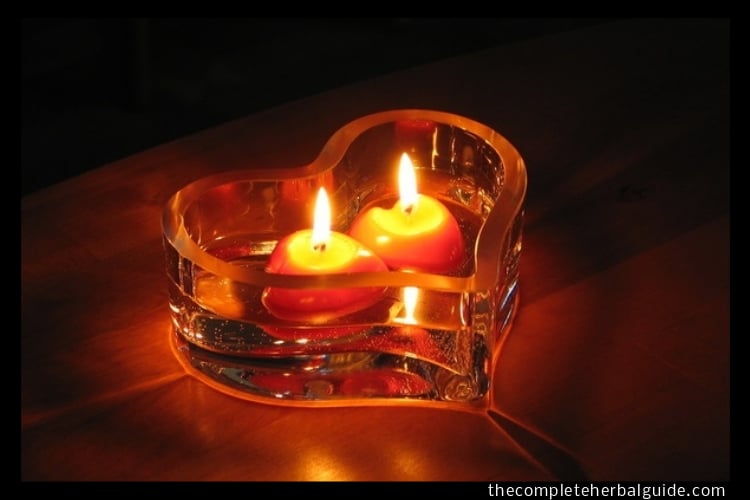
Can Herpes Be Cured Naturally? This is What You Need to Know
If you suffer from any variation of the herpes virus, you may already know the nasty bug cannot be totally eradicated from one’s body. However, herpes is a manageable viral disease. Conventional antiviral medicines used to prevent or treat HSV-1, HSV-2, and H. zoster outbreaks may help, but it may be necessary to take these prescription drugs indefinitely when drug suppression therapy is recommended by your doctor.
According to the National Institutes of Health (NIH), patients using acyclovir, valacyclovir, or famciclovir antiviral medicines may experience diarrhea, nausea, vomiting, headache, visual changes, muscle/joint aches and pains, and fatigue. So, let’s review recent research about supplements and treatments used to manage herpes.
Table of Contents
Natural Herbs and Supplements to Control Herpes
L-Lysine Supplements
According to Mayo Clinic, L-lysine amino acid supplements may prevent HSV (herpes simplex virus) shedding and outbreaks in some individuals. In particular, HSV-2 patients are less likely to achieve control using lysine. Taking lysine and other natural supplements won’t protect a sexual partner during an HSV outbreak, however. Use appropriate precautions to protect your partner.
Increasing lysine-rich foods, including fish, yogurt, potatoes, and brewer’s yeast, and avoiding foods high in the amino acid L-arginine, such as peas, nuts, seeds, and chocolate, may help to manage HSV outbreaks as well.
If you’d like to try lysine supplements, ask your doctor to recommend the best frequency and dosage for you. Dr. Andrew Weil, an authority in the field, suggests a 500 mg to 1,000 mg daily dose. Dr. Weil also suggests Monolaurin may help patients under a doctor’s care.
Herbal Medicines and HSV
Researchers say several natural home remedies for herpes can help people suffering from HSV-1 or HSV-2. These natural remedies include L-lysine, topical lemon balm oil, topical aloe vera gel, St. John’s wort, Echinacea, and licorice. Research says these herbal medicines may reduce HSV outbreak frequency and/or severity of outbreaks.
Topical lemon balm oil
NIH (2008) reports that Melissa officinalis or lemon balm oil reduced herpes virus activity in the laboratory. Researchers note that antiviral or antimicrobial prescription medicines may become less effective in treating HSV infections over time. Lemon balm tea may speed HSV lesions’ healing time. According to Dr. Linda B. White and herbalist Steven Foster, HSV sufferers should use lemon balm before lesions appear to stave off an outbreak and control skin itchiness associated with some HSV outbreaks.
Aloe vera gel
Squeezing fresh aloe gel on affected skin can reduce healing time after an HSV outbreak, according to NIH (2016) research. Apply directly to the skin.
St. John’s Wort
NIH (2014) reports that Hypericum perforatum demonstrates antimicrobial qualities and speeds HSV-1 wound healing. Since St. John’s wort is also used by some practitioners to treat depression, taking St. John’s wort supplements may help HSV sufferers reduce the mind-body stress that may be associated with HSV outbreaks in some persons.
St. John’s wort is bioflavonoid-rich and contains both hypericin and hyperforin. If you take an antidepressant medicine, avoid using St. John’s wort in either form to treat an HSV outbreak.
Echinacea
Once used by indigenous Americans to treat disease, this natural herb may reduce HSV-1’s ability to reactivate in the body according to NIH research (2009). Echinacea also demonstrates antiviral action in the laboratory.
Licorice
NIH research (2015) shows that Licorice, or Glycyrrhiza glabra, is an effective antiviral treatment. Licorice has been used for centuries by traditional Chinese herbalists to treat viral, bacterial, inflammatory, and tumor-causing disease. It demonstrates antiviral and/or antimicrobial activity in the laboratory.
Licorice contains almost 300 flavonoids and 20 triterpenoids and may possess the potential to stimulate the immune system. According to the author of “Medical Herbalism,” (David Hoffmann, 2003) licorice inactivates HSV-1 in the body. He reports that taking licorice can “permanently inactivate” or cure HSV-1 symptoms. Taking licorice tea may reduce the stress associated with HSV shedding. Hypertensive patients shouldn’t use licorice because it can raise blood pressure.
HSV Zoster and Herbal Remedies
According to NIH researchers (2007), it may be possible to manage HSV zoster caused by a previous chickenpox infection with traditional Chinese medicine techniques. Ask your doctor if you’re at risk for zoster, also called shingles. If vaccine inoculation isn’t right for you, ask the doctor about healing herbal treatment options.
HSV and Healing Herbal Management
If you have HSV-1 facial cold sores or HSV-2 genital or anal lesions, you may already know that medical science says there is no HSV cure. Pharmaceutical prescription antivirals can help to suppress HSV outbreaks or reduce the severity of outbreaks. Unfortunately, the efficacy of these treatments can decrease over time as your body builds its own defenses to weaken HSV activity.
In comparison, herbal treatments can strengthen your defenses against HSV outbreaks. Because there are no known pharmacological treatments to permit HSV outbreaks or permanently inactive HSV in the body, using natural healing herbs and supplements can help your body to defeat it.
HSV Treatment Conclusions
Other natural treatment options for HSV include:
- Olive oil
- Antiviral tea tree oil
- Ice packs
- Tea bags
- Epsom salts
- Over-the-counter treatments
- Oregano
- Goldenseal
- Manuka honey
- Cornstarch
- Domeboro astringent powder
- Herbal tea
- Black coffee
- And a variety of cold-pressed oils
According to the National Women’s Health Information Center, doctors and researchers don’t know why HSV reactivates. Physical triggers vary between individual HSV patients.
The International Herpes Management Forum concludes:
- Consuming too much alcohol
- Other genital infections
- Friction from sexual contact
- Physical or emotional stress
- Weakened immune system activity
- Sun exposure
- Skin injury
- And prolonged fatigue
… can prompt an HSV outbreak. Do avoid triggers as part of your HSV management program.






